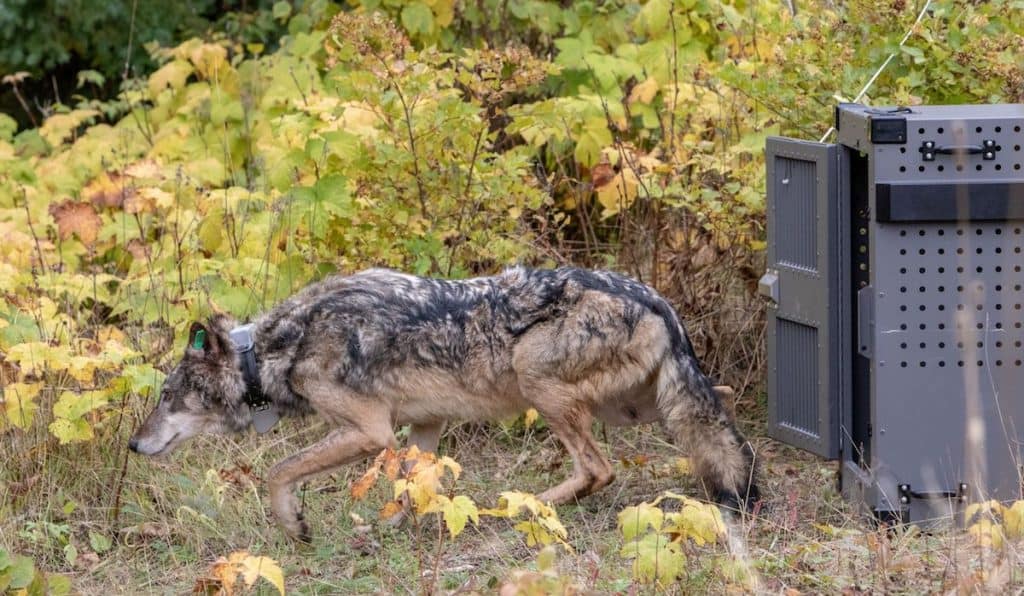
A pair of environmental journalists and professors of journalism have published an article raising questions about the recent reintroduction of wolves to Isle Royale National Park.
Mark Neuzil is a Professor of Communication and Journalism, University of St. Thomas in St. Paul, Minnesota. Eric Freedman is Chair of the Knight Center for Environmental Journalism at Michigan State University. They co-authored the article titled “Restocking wolves on Isle Royale raises questions about which species get rescued” on academic journalism platform The Conversation. They write that they share a “special interest in how the Great Lakes’ ecological problems are defined and communicated.”
Responding to the news that wildlife managers have started trapping and transporting wolves from Minnesota and Michigan to the island in Lake Superior, Neuzil and Freedman say its the animal’s charisma, and the long-running scientific study of the predator-prey relationship with moose, that drove the decision to intervene.
They point out this is the first time the federal government has decided to perform such a “genetic rescue” of an endangered population in a National Park. (The National Park Service has previously reintroduced wolves to Yellowstone National Park to help restore ecological balance.)
“In our view, media attention and the cultural history of the wolf-moose relationship on Isle Royale have outweighed most scientific qualms about putting a finger on the ecological scale,” they write.
Blaming the appeal of photo-friendly subjects, the pair say the potential of good public relations points outweighed worries about meddling with nature, and even how it could harm the mainland ecosystem. One wolf that was trapped and tranquilized to be transplanted has already died during the process.
“For me, waiting for ice bridges to form makes the most scientific and ecological sense,” Seth Moore, director of biology and environment for the Grand Portage Band of Chippewa in Minnesota, told the authors. “We are also worried that wolves stocked on the island will escape, perhaps with different parasites, and come to Grand Portage.”
Neuzil and Freedman say the wolf reintroduction raises complex questions, but not many answers.
“If it works, will the National Park Service undertake similar efforts elsewhere? Should it? How will it choose which species to save? Is inbreeding in a small population a more serious threat than the loss of an animal in an ecosystem, however contained? What about birds, fish, insects or plants? And we haven’t even mentioned species threatened by climate change.”
Read the entire article at this link: Restocking wolves on Isle Royale raises questions about which species get rescued

